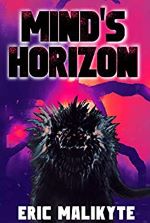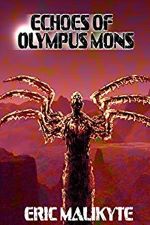One of the most common comments I get from readers is how each of my characters sounds unique in dialogue, and within their own point of view. So, today I’m going to talk about the things that have helped me in developing those voices, and why I think it’s so important to create that illusion for our readers.
When I first started writing books, I was originally training to be an illustrator. I was experiencing some serious burnout when it came to that side of the arts. I had a ton of stories that I wanted to tell, but I wasn’t really sure how to start. I had written dozens of comic book scripts over the years, but nothing that would qualify as prose. I started by reading a book by Ray Bradbury (still one of my favorites) called “Zen in the Art of Writing,” and it kind of changed my life. I sat down over the next year and banged out a 100,000-word manuscript that was full of aliens and spaceships and…it wasn’t very good. But I learned a lot about myself in the process. The real fun began after I put that manuscript down and took a break from writing books.
See, I wasn’t one hundred percent committed yet. I had no idea what Kindle Direct Publishing was and was still under the impression that I would need an agent to get things rolling. It was during the years 2011-2015 that I was working on a web comic series—which never really took off—that I started to develop some ideas that would later lead to my debut novel and follow up. It was only when I learned about KDP and how easy it was to publish, that I really started to get to work. I was reading constantly. Contemporary sci-fi and horror, fantasy, you name it. And one thing stuck out to me, now that I was reading critically for the purpose of finding my voice as an author.
A lot of characters in these books (especially classical sci-fi) sound the same. And for me, that’s a problem. It’s an easy trap to fall into too. After all, we can’t really escape our own point of view, can we? So, how do we confront this issue? How do we learn to write characters so well that readers experience them as different people?
Well, I think that’s part of it. You have to write them as if you’re writing about people. Real people, I mean. And I know lots of authors like to go to twitter and talk about how their characters are making them do all sorts of things, but that’s not what I’m getting at. I mean, study how people around you act, their mannerisms, their vocal tones, their word choices, etcetera. When you start to develop your characters, apply those very concepts to them. There’s a great book on self-editing that I’ve got called “Self-Editing for Fiction Writers” by Renni Brown and Dave King. They do a great job breaking down not only what publishers and agent want to see, but how readers experience modern fiction, and what makes for great writing (even though that is largely subjective)—but, one thing stuck out to me in this book. And that was on character voice. The book was talking about accents in one chapter, specifically for dialogue. How word choice (and NOT odd spelling) can convey accents in a clear way so that the voice that the reader hears in their head, sounds like the accent that you’re trying to convey.
Confusing? I hope not. How about some examples?
(Bonus points: comment below and give your best approximation of where these accents come from)
“He’s done caught onto us, that’s what he did.”
Sounds made up? Not at all. I wrote this down after hearing it come from the mouth of a friend’s relative. Ask yourself what voice you hear when you read that sentence. What kind of accent does it have?
More examples:
“I just felt knackered, you know? He just went mental, mate.”
“What’s a matter with you? I’m talkin’ here, you moron. Never mind. Just get in the car, Larry.”
“Chips is good?”
“That's very kind of you. I assume you are our mysterious party crasher. You are most troublesome, for a security guard.”
“This is good, yes?”
“Kinds are scared of the dark.”
“You’re scared of the dark too, Marv.”
You get the idea. Furthermore, listening to people who’ve learned English as a second language can really clue you in on what can make their accents sound believable when written out in prose or dialogue. This is a start, though, and not the end all be all of developing unique voices. An accent represented in a book is only a caricature of the real thing, as there is no sound to convey it (except in the reader’s own imagination). Think carefully on word choice. Everyone is different. Though you and I may share a similar accent if we grew up in the same region, our word choice may vary greatly due to various mitigating factors.
Here are some things to consider when developing your characters:
Vocabulary.
Upbringing.
Accent.
How they describe their environment (this can even come down to the individual details that they would notice first, and so on. For example, an artist may notice color and texture before shape; a mechanic may notice individual mechanical parts, or cars before buildings; an architect may name drop the types of buildings that make up the skyline of a city and namedrop their designers). Be sure to use all five senses, too.
Their profession (see examples above).
You get the idea.
Once you start thinking about this stuff, you’ll be able to make multi-character POV shifts
without making it too jarring for your readers. But, more importantly, you’ll start to create characters that feel like real people, and that will go a long way to keeping those readers turning pages.


Eric Malikyte is the author of Echoes of Olympus Mons and Mind’s Horizon. He writes cosmic horror, science fiction, and dark fantasy. If you want to get a free PDF of his short horror stories, sign up to his newsletter.
You can also check out his books on Amazon.


No comments:
Post a Comment
Note: Only a member of this blog may post a comment.